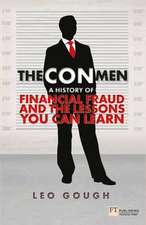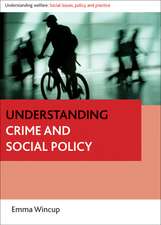Opium: Uncovering the Politics of the Poppy
Autor Pierre-Arnaud Chouvyen Limba Engleză Hardback – 28 feb 2010
| Toate formatele și edițiile | Preț | Express |
|---|---|---|
| Hardback (2) | 323.14 lei 22-36 zile | |
| I B TAURIS – 31 aug 2009 | 323.14 lei 22-36 zile | |
| Harvard University Press – 28 feb 2010 | 338.07 lei 43-57 zile |
Preț: 338.07 lei
Nou
Puncte Express: 507
Preț estimativ în valută:
64.70€ • 67.13$ • 54.08£
64.70€ • 67.13$ • 54.08£
Carte tipărită la comandă
Livrare economică 17-31 martie
Preluare comenzi: 021 569.72.76
Specificații
ISBN-13: 9780674051348
ISBN-10: 0674051343
Pagini: 256
Dimensiuni: 168 x 241 x 25 mm
Greutate: 0.54 kg
Editura: Harvard University Press
ISBN-10: 0674051343
Pagini: 256
Dimensiuni: 168 x 241 x 25 mm
Greutate: 0.54 kg
Editura: Harvard University Press
Notă biografică
Pierre-Arnaud Chouvy is currently a Research Fellow at the Centre National de la Recherche Scientifique (CNRS). He presented the opening speech at the G-8 special meeting in Paris on drug routes in Central Asia. He is also the creator of the website geopium.org.
Recenzii
Timely and provocative...Chouvy meticulously recounts the poppy's very political history, concluding that while illicit production tends to flourish in areas where violence restricts state control, most "Asian opium farmers grow poppies in order to combat poverty."...Exhaustively researched and cogently argued, Chouvy's analysis of the geopolitics of narcotics should be required reading for policymakers, stakeholders, and concerned citizens. Publishers Weekly 20100118 Pierre-Arnaud Chouvy...is an expert on the politics of illicit drugs in Asia. This detailed, well-researched...account is uncompromising in its conclusions: the American war on drugs has been an expensive failure; and crop eradication hasn't worked. Opium growing is a concomitant of weak or non-existent government, combined with civil war, poverty and food insecurity. -- Robert Carver The Tablet 20100204 This book traces the use of opium back to prehistoric times and sketches its complex and interesting history in Europe and especially in Asia, from ancient China and ancient Persia to modern times. It contends that opium production is intimately related to poverty and food insecurity, that eradication programs have inevitably failed to suppress opium production, and that the only way to reduce opium production is to address its economic and social sources by providing livelihoods superior to poppy production. Contrary to conventional wisdom, the labor-intensive production of opium is not highly lucrative to the poppy farmers; it does, however, compare favorably to alternative crops in the states where it is produced. -- Richard N. Cooper Foreign Affairs 20100501 As a site of both the war on terror and the war on drugs, Afghanistan serves Chouvy as a test case for investigating the chicken-or-egg questions that riddle anti-drug policy. What comes first, poverty or poppy growth? Do local warlords spur opium production, or do the conditions that first allowed warlords to take power also give way to a drug trade? Is narcoterrorism--the notion that terrorists use drugs to fund insurgencies--actually behind violence in Afghanistan? ...Opium's insight lies in its reframing of such questions: despite what some politicians would like you to believe, Chouvy argues, these phenomena--violence, poverty, and drugs--can never be understood independently of each other. -- Jessica Loudis New Republic online 20100427 In laying out the economics and politics that tend to accompany opium farming, Chouvy encourages us to reevaluate our drug policy to focus less on the trade itself and more on its root causes, arguing that not until Afghanistan enjoys economic growth and a stable government will it be possible to curtail the drug trade. -- Sarah Halzack Washington Post 20100502
Descriere
Chouvy reveals the long and fascinating history of a powerful and addictive drug, and explores the changing fortunes of the modern-day illicit opium trade, especially in the remote regions of Asia.










